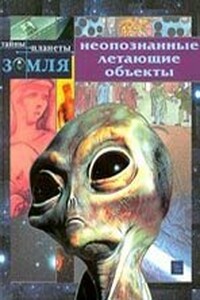Английский язык для специальных и академических целей: Международные отношения и зарубежное регионоведение. Часть 1 - [60]
Europe was neither the most civilized nor the most advanced region in the world. So what made it the center? Europe really was a technical and intellectual backwater in the fifteenth century as opposed to China or the Islamic world. Why these small, out-of-the-way countries? And why did they begin their domination then and not five hundred years before or five hundred years later?
European power was about two things: money and geography. Europe depended on imports from Asia, particularly India. Pepper, for example, was not simply a cooking spice but also a meat preservative; its importation was a critical part of the European economy. Asia was filled with luxury goods that Europe needed, and would pay for, and historically Asian imports would come overland along the famous Silk Road and other routes until reaching the Mediterranean. The rise of Turkey closed these routes and increased the cost of imports.
Unit III. EU at the Crossroads
European traders were desperate to find a way around the Turks. Spaniards and Portuguese — the Iberians — chose the nonmilitary alternative: they sought another route to India. The Iberians knew of only one route to India that avoided Turkey, down the length of the African coast and up into the Indian Ocean. They theorized about another route, assuming that the world was round, a route that would take them to India by going west.
This was a unique moment. At other points in history Atlantic Europe would have only fallen even deeper into backwardness and poverty. But the economic pain was real and the Turks were very dangerous, so there was pressure to do something. It was also a crucial psychological moment. The Spaniards, having just expelled the Muslims from Spain, were at the height of their barbaric arrogance. Finally, the means for carrying out such exploration was at hand as well. Technology existed that, if properly used, might provide a solution to the Turkey problem.
The Iberians had a ship, the caravel, that could handle deep-sea voyages. They had an array of navigational devices, from the compass to the astrolabe. Finally they had guns, particularly cannons. All of these might have been borrowed from other cultures, but the Iberians integrated them into an effective economic and military system. They could now sail to distant places. When they arrived they were able to fight — and win. People who heard a cannon fire and saw a building explode tended to be more flexible in negotiations. When the Iberians reached their destinations, they could kick in the door and take over. Over the next several centuries, European ships, guns, and money dominated the world and created the first global system, the European Age.
Here is the irony: Europe dominated the world, but it failed to dominate itself. For five hundred years Europe tore itself apart in civil wars, and as a result there was never a European empire — there was instead a British empire, a Spanish empire, a French empire, a Portuguese empire, and so on. The European nations exhausted themselves in endless wars with each other while they invaded, subjugated, and eventually ruled much of the world.
There were many reasons for the inability of the Europeans to unite, but in the end it came down to a simple feature of geography: the English Channel. First the Spanish, then the French, and finally the Germans managed to dominate the European
Unit III. EU at the Crossroads
| continent, but none of them could cross the Channel. Because no one could defeat Britain, conqueror after conqueror failed to hold Europe as a whole. Periods of peace were simply temporary truces. Europe was exhausted by the advent of World War I, in which over ten million men died — a good part of a generation. The European economy was shattered, and European confidence broken. Europe emerged as a demographic, economic, and cultural shadow of its former self.(871 words)/ a section from chapter 1. The Next 100 Years by George Friedman.2009/ | |
Paraphrase the parts/sentences you intend to include in your summary. Pay attention to the underlined words. Where several words (a phrase or separate words) in a sentence are underlined try to compress the sentence by using fewer words.
Write a summary of the text using your outline. First answer the question: 'Should the order in which the ideas are presented be preserved?'
Read your summary and answer the questions:
1. Have you accurately represented the author's ideas and key points (the author's emphasis)?
2. Have you given the author's name and the details of the publication>61> in the introduction?
3. Have you mentioned the author periodically?
4. Have you written it in your OWN words? If you quoted the author, use the quotation marks.
5. Have you included any minor details or your own ideas?
6. Is it the right length?
Read your partner's summary and check it against the questions above.
Listening for new information and taking notes
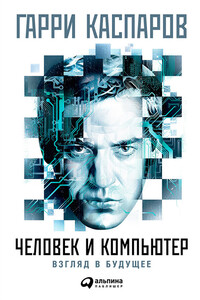
Сегодня искусственный интеллект меняет каждый аспект нашей жизни — ничего подобного мы не видели со времен открытия электричества. Но любая новая мощная технология несет с собой потенциальные опасности, и такие выдающиеся личности, как Стивен Хокинг и Илон Маск, не скрывают, что видят в ИИ возможную угрозу существованию человечества. Так стоит ли нам бояться умных машин? Матчи Гарри Каспарова с суперкомпьютером IBM Deep Blue стали самыми известными в истории поединков человека с машинами. И теперь он использует свой многолетний опыт противостояния с компьютерами, чтобы взглянуть на будущее искусственного интеллекта.
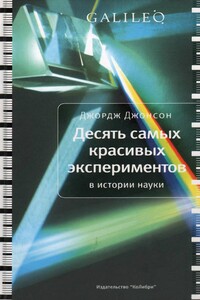
В наше время научные открытия совершатся большими коллективами ученых, но не так давно все было иначе. В истории навсегда остались звездные часы, когда ученые, задавая вопросы природе, получали ответы, ставя эксперимент в одиночку.Джордж Джонсон, замечательный популяризатор науки, рассказывает, как во время опытов по гравитации Галилео Галилей пел песни, отмеряя промежутки времени, Уильям Гарвей перевязывал руку, наблюдая ход крови по артериям и венам, а Иван Павлов заставлял подопытных собак истекать слюной при ударе тока.Перевод опубликован с согласия Alfred A, Knopf, филиала издательской группы Random House, Inc.
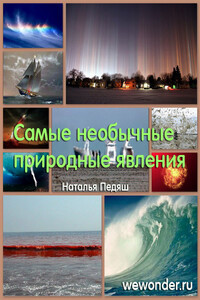
Самые необычные природные явления: брайникл, фата-моргана, прибрежное капучино, огни Святого Эльма, шаровая молния, огненная радуга, огненный вихрь, двояковыпуклые облака, красные приливы, световые столбы, волны-убийцы.
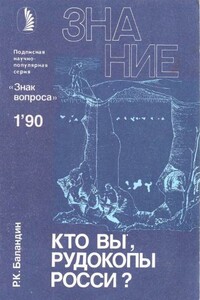
Нам предстоит познакомиться с загадочным племенем рудокопов, обитавших около 2–4 тысячелетий назад в бассейне реки Россь (Западная Белоруссия). Именно этот район называл М. В. Ломоносов как предполагаемую прародину племени россов. Новые данные позволяют более убедительно обосновать и развить эту гипотезу. Подобные знания помогают нам лучше понять некоторые национальные традиции, закономерности развития и взаимодействия культур, формирования национального характера, а также единство прошлого и настоящего, человека и природы.http://znak.traumlibrary.net.
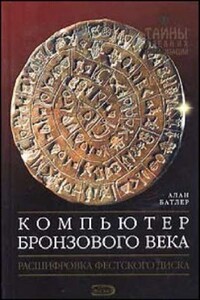
Созданный более 4000 лет назад Фестский диск до сих пор скрывает множество тайн. Этот уникальный археологический артефакт погибшей минойской цивилизации, обнаруженный на острове Крит в начале XX века, является одной из величайших загадок в истории человечества. За годы, прошедшие со дня его находки, многие исследователи пытались расшифровать нанесенные на нем пиктограммы, однако до настоящего времени ни одна из сотен интерпретаций не получила всеобщего признания.Алан Батлер предлагает собственную научно обоснованную версию дешифровки содержимого Фестского диска.
